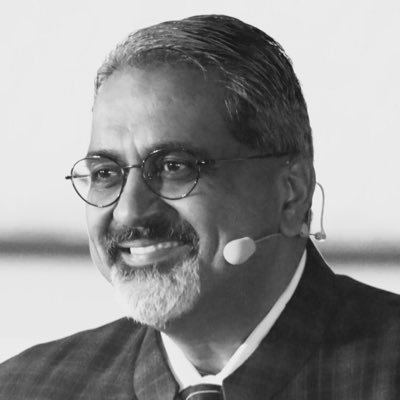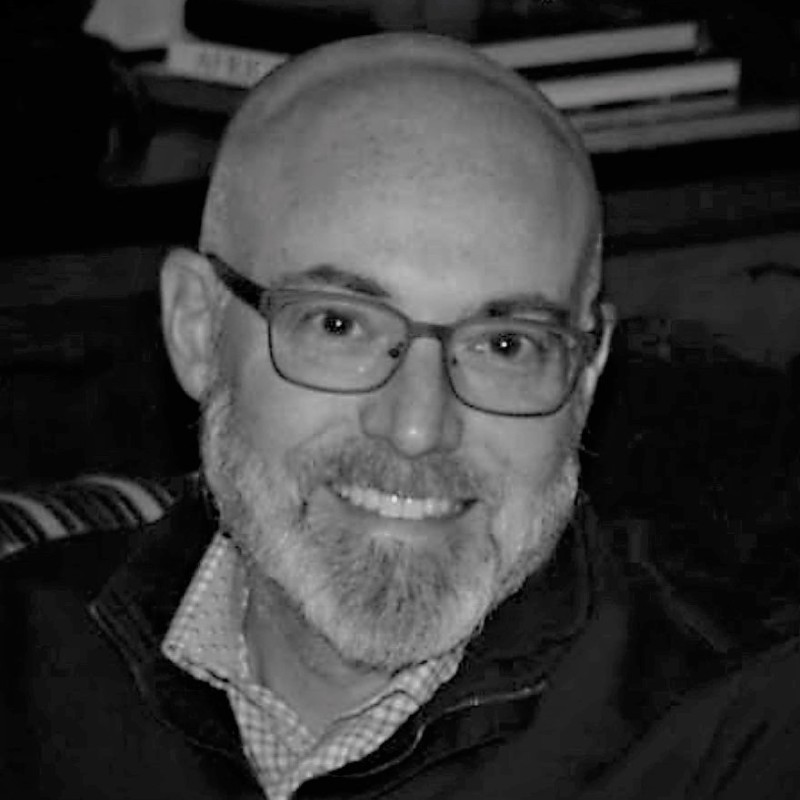Imagine you’re a part of a large team, and maybe, there’s some lack in motivation in the team, and you need a “pick me up”. The management brings in a motivational speaker to build up some energy and momentum and to get you excited about what you’re doing. The conference is over, everyone’s pumped up only to find that the motivation fades away the very next day, and you’re back to square one. Has this ever happened to you?
Krish Dhanam, a motivational speaker who studied under Zig Ziglar, gives the”under the hood” picture and tells us how to keep the motivation going.
What we learned from this episode
When you’re bringing a motivational speaker, make sure the content is connected to the culture and environment. You also need to create internal champions who can bring the concepts presented at the conference back to the office. Set clear expectations and ask people what they want out of the conference and their feedback.
What you can do right now
Create a work culture that promotes the freedom to try without the fear of failure, excellence, and self-sustainability.
Key Quotes
If our goal is to motivate people so we look better, that’s manipulation. If we motivate them so they do better, that’s motivation.
I’m not going in to change the world. I’m just going in to make sure that the world they’re already existing in can be a little better.
I have a very simple model in life. I say reputation determines affiliation and affiliation determines reputation. And if you do both successfully, you’ll end up on the right side of gravity.
The day you practice for something you’re not paid to do is the beginning of the journey that will take you to the place where they pay you for what you practiced.
You can fail at something. You cannot fail as someone.
My job is not to compete. My job is to calm the folks who feel I shouldn’t be there and assure the folks who thought I should.
Today, our guest is Krish Dhanam. He’s the managing partner of skylights success. He’s an author and speaker and this episode is Work Minus Fading Motivation. Hi, Krish. How are you?
Doing good, Neil. Thanks a lot for having me on.
We’re very excited to have you. You are a well known speaker that goes about but why don’t you give us a little bit of your background and how you got into your role?
Well, the Reader’s Digest version is I got to America in 1986 same way most immigrants chasing a dream, somehow managed to get on Zig Ziglar’s team as a telemarketer and that’s when my light switch was flipped as to the changing need for my own behavior. And one thing led to another and that affiliation brought me to where I am right now. But it’s taken me across the globe and introduced me to some fine concepts along the way.
So, Zig Ziglar, obviously a very well known name that’s out there. What are some of the big things you learned studying under him?
I’ve often said when people ask me that question over the years that if the dictionary ever went pictorial, the word consistency would have to have the picture of Mr. Ziglar or else don’t buy the book. He was the most consistent man I ever knew. What you saw is what you got. For those of the people listening that saw his public profile, that is exactly as he was in private. So, the number one lesson I learned from him was consistency. And the second thing I learned from him about work he says, he always called me “son”, and he said, “Son, if you don’t react, if you don’t believe your positive press, you won’t have to react to your negative press.” He says take it in stride.
You are a well known speaker. You go around doing a lot of talks. What are the types of venues you normally speak at? What are the topics you usually cover?
Most recently, I was in India where I did a session on personal branding for Volvo trucks which include empowerment of women in India all the way up to speaking to 35,000 people at the Georgia Dome as one of people amongst 15 other speakers. So, I’ve run the gamut. I motivated four bakers in the morning in a bakery shop when I first got started and I’ve done ministry along the way. So, I go where the need is, and fortunately, human beings all over the world want the same things, to be a little bit happy and healthy and those kind of things. So, we try to engage wherever we’re needed.
What I want to do in this episode is to focus on this idea when somebody is leading a large team, they feel like maybe there’s some motivation that’s lacking, they need some kind of pick me up. And so, one idea is to say, okay, let’s go to a conference, let’s bring in a speaker, let’s do something like that. And a lot of times, it’s a really effective way to build up some energy, build up some momentum, and to have that kind of feel of like, yeah, we’re back to being excited about what we’re doing. But over time, that feeling often fades away, sometimes very quickly, the next day, sometimes it takes a week or two to fade off. So, I want to talk about that dynamic. So, first off, we’ll just start with the idea of is bringing in a speaker, going to a conference, should that be one of the first things people think about if they think their team is lacking in motivation?
Well, having been a speaker on the side who has been brought in for 25 years, obviously the answer I would say is yes because we hope we’re making a difference. But to go back to your original premise, you’re absolutely right. It’s a Tarzan swing in some way for the people in the audience because they say here we go again. We’re going to go to one end of the extreme because someone’s going to hype us up then we go back to the culture of our own environments where none of us have impact. So, one of the things I recommend is that if you’re going to bring in a speaker make sure that you have a conduit that that content is actually connected back to their culture and create some internal champions who can integrate with the speaker in some way so they can bring back the concepts for some kind of longevity. So, otherwise, it’s perceived as that Tarzan swing. It makes for a good conference but we have to make the pendulum swing back to their culture, their environment, their ecosystem.
You said that people feel like they’re back into an environment where they have no impact and does a conference speaker even heightened that feeling, like, okay, we didn’t ask for this person to come in, we didn’t ask to go to this conference, but we’re even being expected to go there and then we’re expected to be happy back here. That seems like a big issue.
I think the way you address that and the way we do it with folks, again, being proactive is I always tell the people if you do not get their input into the speaker’s mind in the sense that the person coming to a conference feels that this is not some third party talking head but actually issues were discussed about what the culture is facing and the speaker did address them. So, having that precall with the folks and then having a call with some of what we call their superstars or their overachievers or even people within their own environment. So, I try my best to talk to people before the conference actually happens saying, hey, what are your expectations? I try to get to the session about an hour or two before and try to interact with people. So, unless the audience perceives that, hey, you know what? The person who is communicating to me has actually talked to my environment, has talked to my superiors and my subordinates, and I’m not wasting my time just because it’s a resort and we flew him in but he actually understands some of my problems. So, I think the perception has to be catered to other ways of the world we live in perception is fact fact is not fact.
Let’s say that someone contacts you. They say that, “I feel like my team really needs some more motivation. They need to get a pick me up from this.” What are the very first questions you lead with?
The very word motivation itself, a colleague of mine used to say motivation is a motive for action. Whose motive is it? If our goal is to motivate people so we look better, that’s manipulation. If we motivate them so they do better, that’s motivation. So, my first goal is why do you want change in your environment? What is it that you’re struggling with? And so, years ago, an organization book was called “Up the Organization” written by Robert Townsend who turned Davis around. And he would ask every environment he ever interacted with three basic questions and I try to use the same process. What do they do right now, role identity? What would they like to do, role destination? But how will we know when we get there, the benchmark? And I said unless we have clarity on some of these issues, we can’t put together a cohesive program with just coming and doing “Rah! Rah!”
What does it feel like? I’m sure you’ve experienced this type of situation where you do something, you do your best, you provide that motivation, and then you just know that, man, these guys are not… this is just going to be back to regular the next day. What’s that like as a speaker?
You’ve actually stumbled on the one thing that is hardest for those of us that participate in the realm of motivation is we have to believe that we are called to do this so we’ll fight again tomorrow and you can’t take it personally. But this goes back to sales 101, the difference between refusal and rejection. I don’t allow people to reject me unless they’re in my inner circle so if you refuse me based on a skill I portrayed, I go back to the drawing board and learn new skills so I can fight another day. But hopefully I teach the same principles that I learn by that engage them and by God’s grace over the last 25 years I probably had more hits than misses.
What do you think is the proper role for a conference or for a speaker to be brought in? Should managers look at it as a shot in the arm, something just to kind of let’s get over the next hump so we can find some more motivation later on? Or how should a manager look at strategically using these types of events?
I think twofold. One is, yes, a shot in the arm sometimes is needed because it’s just like going to a doctor and taking a little medicine. It’ll give you instant relief and that’s maybe what you need, a little levity, some of us bring humor into the environment, we connect anthropology, all of those things. But the second component is the person brought in has to have some kind of connection to the other people presenting because the majority of what’s presented at a conference is going to be business or industry specific. The speaker who’s brought in from the outside maybe window dressing or may have some kind of notoriety, celebrity, and all of that other stuff. But if we can combine the two in the sense that the person who has being brought in to give that shot in the arm, that momentary relief, also connects to the other teams that are being presented, I think they’ll have a win-win.
And how can team leaders prepare people for a conference? Because a lot of time it’s just like, hey, we’re going to this, or hey, we have this person coming in, show up at this time, be there, don’t be late. What are some other ways that people can prepare their teams for these events?
The best way to do that is actually before you even pick the speaker, you go and do you poll your people saying, hey, you’ve been to conferences before, if you want this one to succeed, what are the three things you absolutely must have in terms of the external speakers and the internal speakers. So, you build your agenda based on people’s perception and people poll. And then tell them that that’s what you got them. So, when you announce the agenda for the event, just say, hey, based on your feedback of X, Y, Z, we got this person who’s going to deliver X, Y, Z. So, people’s anticipation is then prepped based on the fact that, hey,my suggestions were valid. Not all suggestions are going to be accepted but suggestions at least need to be validated as suggestions from an environment.
What have been some of your favorite conferences events that you’ve done over the past several years, over the course of your career, even, that you really felt like it was just well planned, well executed, and really had an impact on people?
Well, most recently, just to mention a name of an organization, I don’t know if I’m allowed to do that or not, but I spoke for a sales group for Sandler in Orlando. They had about 1,800 people from around the world and I come from a sales background but gravitated towards motivation and culture. But they planned for, I’m venturing to guess, a good seven or eight months went into this where we had a lot of different calls talking about the specific nuances, cultures, changes, roles, etc. So, by the time I arrived in Orlando, I was more than prepped and ready to go, and based on the feedback we received from that right until about an email I got two minutes before we went on the show, it clicked on all cylinders and that meant the preparation did work. The ballroom event I just did in India also went to about six months of preplanning where the individuals bringing me in literally they put their reputation on the line saying that, hey, at the end of the day, I want my people to get the maximum out of this effort. But they don’t sell them short. We’re talking high performers. I’m not going in to change the world. I’m just going in to make sure that the world they’re already existing in can be a little better.
What are some leading indicators you found for conferences and events that you’re like “I don’t know about this and I think this is not going to go over as well as I thought it was going to”?
When you get mixed messages which means when one level of the hierarchy tells you X and then you go a little lower down as you’re getting closer to the event, you begin to realize that the rest of the folks who are dealing with logistics and all that just feel it’s cumbersome that you’re being invited. And sometimes what happens is you can go sideways with an internal champion who believes that they should be the expert and you’re being brought in to replace them. And that fight with internal training champions and all that is not so much a competition as much a perception but you overcome it by just hopefully… I have a very simple model in life. I say reputation determines affiliation and affiliation determines reputation. And if you do both successfully, you’ll end up on the right side of gravity.
And what do you mean by affiliation?
Affiliation is who your network is. So, if people have anxiety about what I’m going to contribute or if they believe that I’m an outsider being brought in because their boss liked me at another conference and they’re not so sure, I have to show them my affiliation with their peer group, so with their industry, my background, my experience. So, if you’re younger in this pattern, it’s a little harder to show your affiliations, but after two and a half decades in this, I probably have enough skins on the wall and enough names in the rolodex to throw around to say, “Folks, hey, you know what? I know how you feel. I know all your apprehension. But if you check this out with these folks, they’ll tell you that I do my research.” My job is not to compete. My job is to calm the folks who feel I shouldn’t be there and assure the folks who thought I should.
Now, what are some of these questions? Like, if you have a chance to talk to some various levels of people within a hierarchy in an organization before you go in, what are the questions you ask to the people at the various levels to really get a pulse for what the real story is behind the things?
First thing I ask is and it’s like just doing your diligence like an investigative journalist. When you look at journalism, they always ask the who, what, when, where, why, how questions. So, I just have a grade on my table. It’s a rudimentary just white sheet of paper where I write down these questions. I say who are going to be the main people over there? What is the expectation for the event? When do you expect change to come into your environment as a result of this? So, some kind of narrative that is built on the who, what, when, where, why, how, but that allows me to have a questioning technique that’s a little open ended and not closed ended and try to get a feel for them. So, if you are an early adapter and you’re in the top percentile person that’s been presented to me as a superstar, I always say what do you think of the things that are holding you back from doing even better because you’ve been identified as a top person? If you’re a middle person, I would say, hey, what advice do you need to get from the top and what advice do you need to flow through you to the bottom? Wherever they are in the hierarchy, I position the questions based on where they want to go, where they have come from, have they been identified as a bench plan, as a talent management, which ever the components are. And I use as a primer an article that a friend of mine, Huggy Rao, wrote years ago called “From Bad to Great.” It was published by McKinsey. He’s a professor at Stanford. But in that, he said, from bad to great, there are a few things we need to get before we move forward. One is plumbing before poetry, adequacy before excellence. And it’s a brilliant article and maybe after the show I’ll just email it to you. It’s just a PDF. But I use some of these concepts to engage people to share that I’m actually on the same side looking in the same direction.
Huggy’s great. He’s got a lot of great information and we’ll definitely link to that in the show notes for sure. Let’s switch the conversation a little bit to after the event’s over. It’s gone well. You’ve done your research. Everyone else has prepared everything well. It’s a big event, big success, everyone’s happy with it. Now, as a team leader, what do I need to do to make sure that we can ride this wave for a long time and continue the success we’re seeing?
Part of the post follow-up which is I just did it yesterday for two of the companies that I worked with in the last couple of weeks is ask them for maybe a post panel webinar of some kind if they think that that’s too cumbersome. And some of these things I offer as no charge. I just build it into my original thing because, like you said, I want the concept to succeed and I just don’t want to be someone who was a shot in the arm. So, the email communique and some of the digital communication parameters that we have in place don’t cost me anything. They cost me maybe 15 or 20 minutes of time, but if planned well, it will give those people good amounts of information at least for six to eight months follow-up. And this goes back to Zig Ziglar 101. He says most conferences are designed to give short-term, quick fix. He says become the kind of communicator who provides long-term, voluntary change. So, they have to have access to me after, it’s built on the premise that all are invited, not all are expected.
Let’s say we’re talking to somebody who wants to do something like this, they feel like they need to mix things up a little bit, but they have absolutely no budget. So, what’s a way that someone can organize a little mini conference on a shoestring budget and get a similar effect that they would to pulling out all the stops?
Just like we’re talking on Skype or any of the other parameters, digital communication has allowed that to happen. Free conference call bridges are available. None of these things cost any money. But again, the premise has to be is is this speaker really talking or is he only about the honorarium? Well, the principle that I was raised on is you can have everything in life you want if you just help enough other people get what they want. And so, sometimes you have to participate and offer your services at no cost if you really believe in your message. If someone doesn’t have the money but feels they need the motivation and you have the message and the medium, you might as well get together. What’s the worst that can happen? Some people will benefit. But someday as your principles work and they become culturally successful and economically viable, you’re the first person they’ll pick to actually reward. So, I have a saying. I say the day you practice for something you’re not paid to do is the beginning of the journey that will take you to the place where they pay you for what you practiced.
Nice one. Have you seen examples of successful conferences that even are almost like speakerless. Like, it’s totally internal. It’s just something that people organize on their own and really the motivation comes from within?
Absolutely. And this is, within cultures, about specifics, but over the period of time, I’ve seen many organizations. But again, the internal talent is that rises to the top. See, public speaking, they say, is the number one fear of all. Fear of death by drowning is number six. So, the reason most people don’t do it is because they feel that they’ll be embarrassed in front of their colleagues and they’ll say the wrong thing. But every environment will have two or three who buck the system and they’re perfectly capable of running it. When we worked at Ziglar, obviously, we were all speakers who went outside, but all our conferences had our own people. So, they were very successful. When I got shot at speaking for Ziglar, I used to sell books and tapes at the back of the room. How qualified was I? It was just by osmosis. Anyone of us could do it because we had been given the confidence and the courage of our own conviction. Mr. Ziglar always said failure is an event. It has never been a person. You can fail at something. You cannot fail as someone. So, we were free to try. And if a culture promotes that kind of excellence, people will rise to the top and they’ll be able to self sustain.
Excellent. Well, Krish, why don’t you end us with just telling us a little bit about some of the recent thoughts you’ve been having, the book you guys released recently. What are some of the new thoughts you’ve had?
Well, my most recent book was a couple of years ago. It was a book called “Hardheaded, Softhearted,” which I wrote with the former president of Microsoft, Rick Belluzzo. And that book is based on the premise that gone are the days of an either/or ideology. It’s an and/also culture. So, this book talks about lessons from the boardroom to the break room. Rick ran $3 billion companies and he gives information from the top down. I’m a people motivator so I wrote information from the bottom up. And we collaborated and produced this and it’s being taught as culture curriculum globally. And in fact, I was just in India deploying some of that. So, that’s one. The second component I’m dealing with on a broader scale in these last innings of my life. I’m 57, if I do this for another 15 years. I’m trying to collaborate a thought process called the “Currency of Thought: the price we pay to think and the cost we bear for not.” Dealing with very simple concepts of intrinsic motivation, intrinsic value, saying if we wait for external validation we’ll be a spectator. If we look for intrinsic motivation, we may be a self starter.
That sounds exciting. Krish, where can people go to stay in touch with you to see what you’re doing next?
My website krishdhanam.com. Follow me on all social media, Linkedin, Instagram, Facebook, all of that. And just go online, watch the YouTube clips, and give us feedback. Tell us if we’re making a difference and what you’d like us to do next to continue making that difference.
Excellent. Krish, thanks a lot for coming on the show. I appreciate you talking about this topic and giving us a behind the scenes look at the life of a speaker and how we can get the most out of motivating people and keeping that motivation going.
Thanks a lot of, Neil. I appreciate what you do and thanks for spending time in the land of my birth. Always a joy to talk to someone who’s done that.
Krish Dhanam is the epitome of the American Dream. A native of India, he arrived in the United States with nine dollars in his pocket and a vision of promise in his heart.
In a practical and informative way, Krish showcases how the American Dream is still alive and well. He tackles the issues of faith, freedom, discipline, dignity, pride, possibility, work ethic and relationships with word pictures that will resonate with readers long after they put this book down.
The advice Krish offers will stir you to the foundation of your belief in this great and awesome land. He reverently pays homage to “the land of the free and the home of the brave” as only a grateful immigrant can do. With a glowing foreword by his mentor Zig Ziglar, this book has also received accolades from communication giant Nido Qubein, sales master Tom Hopkins, and spiritual philosopher and theologian Dr. Ramesh Richard.
Krish Dhanam was born in the coastal town of Vizag, in Andhra Pradesh, India. In 1984 he finished his MBA at the Institute of Management Technology and migrated to the United States in 1986.
The road Krish Dhanam took to becoming one of the most dynamic speakers in America began in southeast India with the dream of moving to America. He arrived in New York City in 1986 with nine dollars in his pocket and a burning desire to achieve the levels of success he’d seen in the American-made movies he viewed as a child.
As a proud card-carrying member of the sales force of America Krish soon started his corporate climb. Through training, teaching and facilitating seminars all over the world, Krish launched his professional speaking career. As one of only two executive coaches personally trained by Zig Ziglar, Krish has successfully delivered his message of hope, humor and balance on six continents and throughout the continental United States. His client list is the who’s who of global enterprise and he has received accolades from some of the most distinguished organizations including, The United States Army, Christian Dior, Steelcase Industries, Apollo Hospitals, The Environmental Protection Agency, Weyerhauser and the Florida Department of Revenue.
He is the author of The American Dream from an Indian Heart, From Abstracts to Absolutes and contributing author to the book Top Performance written by Zig Ziglar. His latest book Hard Headed Soft Hearted co-authored with Rick Belluzzo (former President of Microsoft) is being used as culture-transformation curriculum globally. Krish also acts as the Global Corporate Adjunct for Ravi Zacharias Ministries and sits on the board of The Skypass Foundation. As a Managing Partner in SkyLife Success, he is constantly developing curriculum for global deployment. He is also actively involved in his church and is the President of Mala Ministeries. He and his bride Anila are the proud parents of Nicolas. Krish and his family make their home in Flower Mound, Texas.












